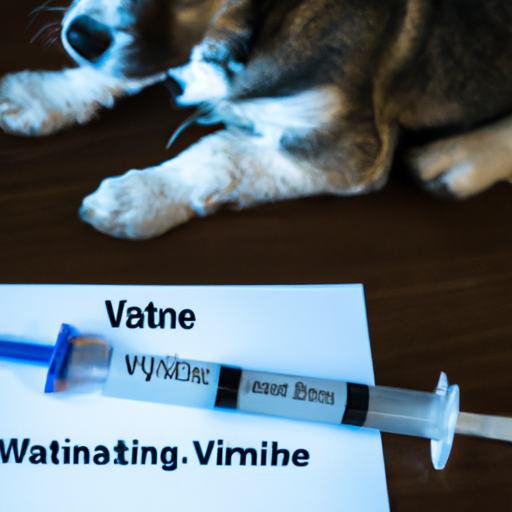Understanding the Distemper Virus
As a loving caregiver, you seek to protect your pet from harm, which includes understanding threats like the distemper virus. The distemper virus is a highly contagious and deadly disease found in dogs. It targets their gastrointestinal, respiratory, and nervous systems. As a responsible pet owner, it’s crucial for you to understand this virus and how to protect your furry friend.
The Role of the Distemper Vaccine
The distemper vaccine plays a critical role in your dog’s health. It’s designed to protect your pet from contracting this deadly virus. The vaccine stimulates your dog’s immune system to produce antibodies without causing the disease itself. This prophylactic approach is effective and often a routine part of your dog’s vaccination schedule.
When and How Often is the Vaccine Administered?
The distemper vaccine is typically administered in a series when your dog is a puppy and then given as a booster shot every 1-3 years. The exact schedule can vary depending on your dog’s health, lifestyle, and risk factors, so it’s best to talk to your vet. The typical vaccination schedule is as follows:
- Initial vaccination: 6-8 weeks
- Follow-up shots: Every 2-4 weeks until 16 weeks
- Booster shots: Every 1-3 years
Potential Side Effects of the Distemper Vaccine
While vaccines are generally safe, there can be some potential side effects. Most are minor and temporary, but it’s essential to be aware of them. Possible side effects include:
- Mild fever
- Reduced appetite
- Sneezing, coughing, or other respiratory symptoms
- Swelling at the vaccination site
It’s important to keep a close eye on your pet and report any worrisome symptoms to your vet.
The Costs of Distemper Vaccination
The cost of the distemper vaccine can vary based on factors like your location and the specific veterinary clinic. However, the table below provides a general estimate of the expenses involved.
| Cost Item | Estimated Cost |
|---|---|
| Initial vaccine series (puppy) | $75-$100 |
| Booster shots | $20-$50 |
Remember, the cost of prevention is typically much less than the cost of treating a disease.
Frequently Asked Questions
Q: Can my dog get distemper if they’ve been vaccinated?
A: Vaccination significantly reduces the risk, but no vaccine is 100% effective. Regular booster shots are crucial to maintaining immunity.
Q: Are there dogs that should not get the distemper vaccine?
A: Dogs with compromised immune systems or those who are allergic to the vaccine should not receive it. Always consult your vet to understand what’s best for your pet.
Q: How can I tell if my dog has distemper?
A: Symptoms may include coughing, sneezing, nasal discharge, fever, lethargy, sudden vomiting, and diarrhea. If you notice these symptoms, get your pet to a vet immediately.
Remember, your dog depends on you for their well-being. Stay informed, stay vigilant, and provide them with the necessary health care they need to live a happy, healthy life.



